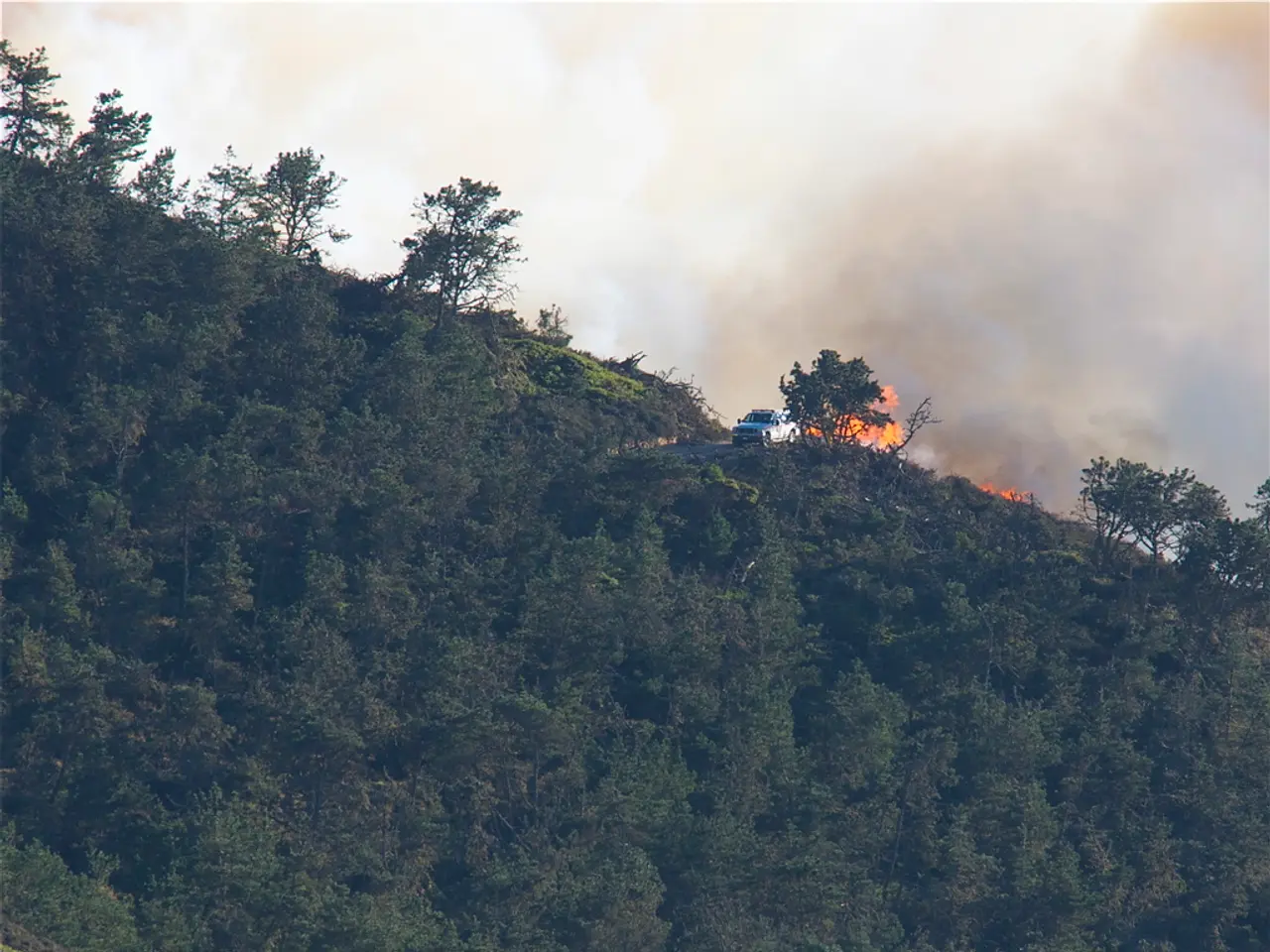Extreme heat sweeps across various European regions, intensifying the risk of wildfires in France.
Europe is currently grappling with a severe wildfire season, with countries such as France, Bulgaria, and Turkey heavily affected by the ongoing heatwave. According to data, over 1,600 fires have been detected across the continent, burning approximately 439,568 hectares - double the average for this time of year over the past two decades.
In France, the number of wildfires this year is nearly three times higher than usual, and the country has seen some of the worst impacts including deaths and large evacuation efforts. High fire risk persists due to ongoing extreme heat with temperatures surpassing 40°C in many areas.
Bulgaria has experienced multiple simultaneous wildfires, leading to activation of the EU Civil Protection Mechanism. Several countries, including France, Czechia, Slovakia, Hungary, Romania, and Sweden, have mobilized aircraft and firefighting teams to assist with Bulgarian fires. The situation remains critical with severe fire danger forecast for the Balkans region.
In Turkey, wildfires have also been devastating amid the heatwave. Turkey ranks among the worst-hit countries along with France, Greece, and Spain. Ongoing drought and extreme heat continue to exacerbate fire risks. The Dardanelles Strait was closed to allow water-dropping planes and helicopters to operate safely in Turkey.
Across Europe, the fire danger forecast for the coming days predicts extreme to very extreme fire risk in France, the Balkans (including Bulgaria), and Mediterranean regions such as Turkey. The EU Civil Protection Mechanism has been heavily engaged this season, with unprecedented activations to support firefighting efforts.
In Bulgaria, one of the major blazes near Strumyani has reignited after three weeks. Nearly 200 fires have been reported in the country, with three major blazes along the borders with Greece and Turkey. Over 100 firefighters and emergency personnel are battling fires in Bulgaria, supported by army helicopters and two Swedish aircraft. Alexander Dzhartov, head of the national fire safety unit, described the situation as "very challenging."
In Hungary, authorities imposed a nationwide fire ban amid extreme heat and drought. Hungary recorded a new national high of 39.9 C (104 F) on Sunday in the southeast, breaking a record set in 1948. Budapest also recorded a city record at 38.7 C (101.6 F) on Sunday.
The fire in Turkey broke out in an agricultural field in the province of Canakkale and spread into surrounding forestland, forcing evacuations and suspending maritime traffic in the country's northwest. The wildfire risks are high in wine country in southern France due to the heat wave.
According to the U.K.-based Carbon Brief, 2025 is predicted to be the second- or third-warmest year on record. Europe's land temperatures have risen about 2.3 C above pre-industrial levels, nearly twice the global rate. As the continent continues to warm, the risk of severe wildfires like those currently being experienced is likely to increase.
[1] European Forest Fire Information System (EFFIS) - https://www.effis.eu/ [2] European Union's Copernicus climate change service - https://climate.copernicus.eu/ [3] European Commission - DG ECHO - https://ec.europa.eu/echo/content/civil-protection-mechanism_en [4] European Forest Fire Information System (EFFIS) - Weekly Wildfire Bulletin - https://www.effis.eu/weekly-bulletin/
- The ongoing severe wildfire season in Europe, mainly in countries like France, Bulgaria, and Turkey, highlights the threatening impact of climate change on the environment.
- The increased frequency and extent of wildfires in Europe, such as those in Bulgaria and Turkey, are potentially linked to the rising global temperatures and changing climate.
- As the temperature continues to rise and drought persists in Europe, scientists predict that the risk of severe wildfires will likely escalate in the future, emphasizing the need for more research and action in the field of climatology and environmental science.







